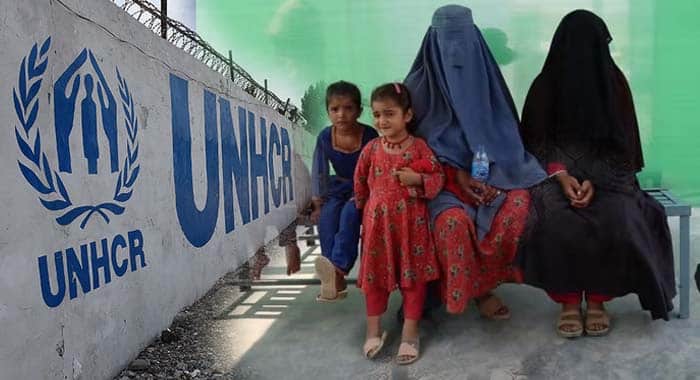The United Nations High Commissioner for Refugees (UNHCR) has issued a stark report highlighting the worsening plight of Afghan women and girls, who are being systematically excluded from education, employment, and public life amid the ongoing Taliban rule.
The report particularly underscores the dire conditions faced by Afghan women returning from Iran and Pakistan since 2021. According to UNHCR data, these returnees encounter significantly greater obstacles in accessing basic services than their non-returning counterparts. For example, 21 percent of returnee women struggle to access clean drinking water, compared to 14 percent among non-returnees. Similarly, 22 percent face barriers to obtaining public healthcare, and 28 percent report difficulties accessing legal services.
The isolation of returnee women is stark, with only 19 percent reporting daily contact with other women, while a troubling 40 percent describe their mental health as “very poor.” The report draws attention to the intense psychological stress borne by these women, exacerbated by social exclusion and restricted freedoms.
Female-headed households are particularly vulnerable, carrying a heavier workload and facing more severe food insecurity than male-headed households. The report reveals that 61 percent of women in such households work long hours detrimental to their health and wellbeing.
One of the most critical barriers to integration and access to services is the lack of official identity documents. Two-thirds of returnee families reported that members lacked property or civil registration papers. Women, in particular, face additional hurdles due to requirements mandating male guardians to accompany them, coupled with a widespread lack of awareness about bureaucratic processes. This severely limits their ability to obtain necessary documentation.
UNHCR also found that women’s representation in local governance and decision-making remains minimal, with most power concentrated in the hands of men. Families returning from abroad report higher incidences of threats, denial of services, and discrimination compared to host communities.
The report also sheds light on the prevalence of unreported cases of domestic violence and forced marriage, with many women preferring to seek help from local elders or relatives rather than formal legal institutions such as courts or police.
Education access for girls has plummeted since the Taliban takeover, with girls only permitted to study up to the sixth grade. Overcrowded classrooms, long distances to schools, and early marriage are key reasons behind high dropout rates. These restrictions have effectively reversed years of progress in female education in Afghanistan.
UNHCR has urged a multi-pronged approach to address these challenges, recommending collaboration with local councils and religious leaders to raise awareness, bolster referral services, and create support networks. The report also calls for expanding women-focused legal aid, psychosocial support, cash assistance programs, and livelihood opportunities through partnerships with the private sector.
International humanitarian organizations continue to condemn the Taliban’s policies, which have severely curtailed women’s freedoms and rights, rendering Afghanistan one of the most hostile environments for women worldwide. The UNHCR report paints a grim picture of systemic violations against half the country’s population, underscoring the urgent need for coordinated international and local efforts to alleviate the suffering of Afghan women and girls.





